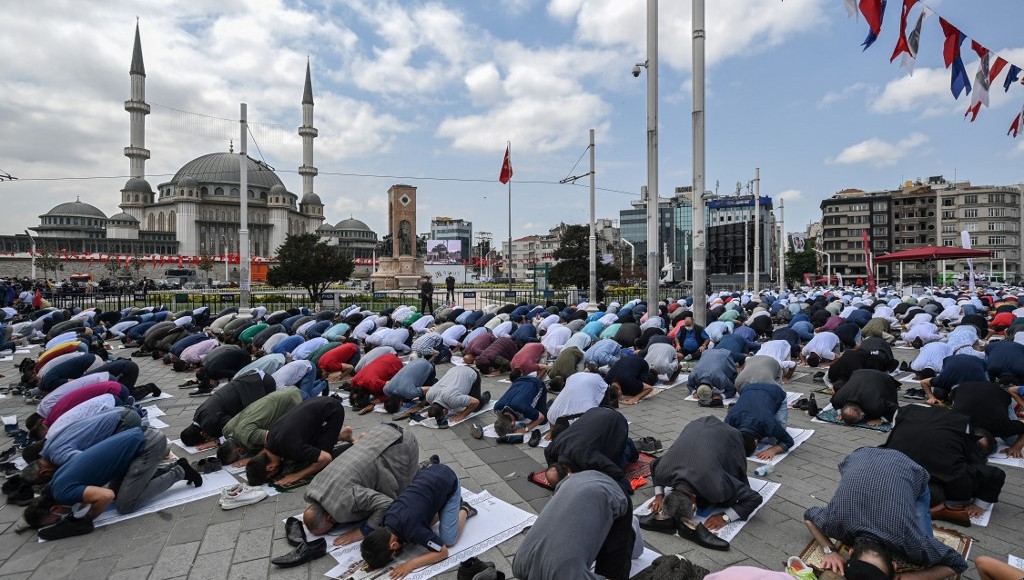A survey by KONDA Research has revealed a significant shift in religious identification in Turkey over the past 16 years, showing a decline in the number of people who describe themselves as devout and a noteworthy rise in those who identify as atheists or nonbelievers.
The study, titled “Lifestyle Research,” was conducted in October 2024 with 6,137 participants nationwide and compared the results with a similar survey from 2008, reflecting evolving attitudes toward religion across Turkish society. KONDA published its findings on X on Friday.
Türkiye toplumunda dindarlık azalıyor, inançsızlık ise artıyor. 2008 yılında kendini ateist ve inançsız olarak tarif edenlerin oranı yüzde 2 iken, şu anda yüzde 8. En dindar küme olan "sofular" ise değişmeyerek yüzde 12 oranında.
.
.
.#konda #araştırma #barometre #research… pic.twitter.com/fvKnSWSVfj— Konda Araştırma (@kondaarastirma) May 30, 2025
According to the findings, the proportion of respondents who identified as “devout” dropped from 55 percent in 2008 to 46 percent in 2025. In contrast, people who described themselves as atheists or nonbelievers increased from 2 percent to 8 percent during the same period. Meanwhile, the share of respondents who identified as “believers” but did not consider themselves devout rose slightly from 31 percent to 34 percent. The only group that remained unchanged was the “very devout,” which held steady at 12 percent in both surveys.
Konda said in a statement on X, “Religiosity is declining in Turkish society, while non-belief is on the rise. In 2008, just 2 percent of respondents described themselves as atheists or nonbelievers; today that figure is 8 percent.”
The survey’s findings raise questions about the cultural consequences of more than two decades of rule by the Islamic-rooted Justice and Development Party (AKP). Since coming to power in 2002, the AKP has promoted a political agenda deeply intertwined with Islamic values, expanding religious education, promoting Islamic visibility in public life and reinforcing conservative family norms.
Under President Recep Tayyip Erdoğan, the party’s increasingly authoritarian governance and frequent use of Islamist rhetoric, backed by support from various Islamic sects, has alienated many Turks who oppose its interpretation of religion’s role in society. Tensions have been especially acute over the growing influence of the Directorate of Religious Affairs (Diyanet), which critics view as a vehicle for advancing political Islam.
Although Turkey is a majority-Muslim nation, it is officially secular. Erdoğan’s repeated declarations about raising “pious generations” have deepened concerns among liberal and secular citizens, who view such ambitions as a threat to the foundational principles of the republic.
Many accuse the AKP of infringing on personal freedoms and attempting to impose a religious lifestyle through state policy.
Policies intended to cultivate greater religiosity may have produced a backlash, observers say, suggesting that the politicization of religion and its entrenchment in state institutions have driven growing numbers, especially among urban youth, toward secular or nonreligious identities as a form of resistance to perceived state-imposed religiosity.

